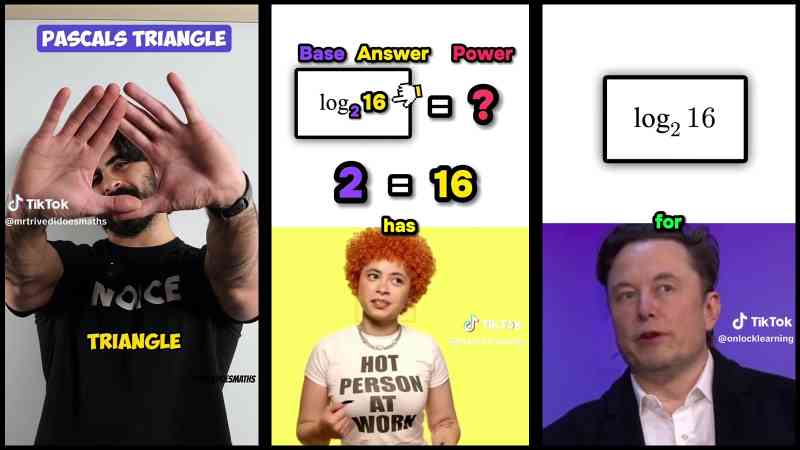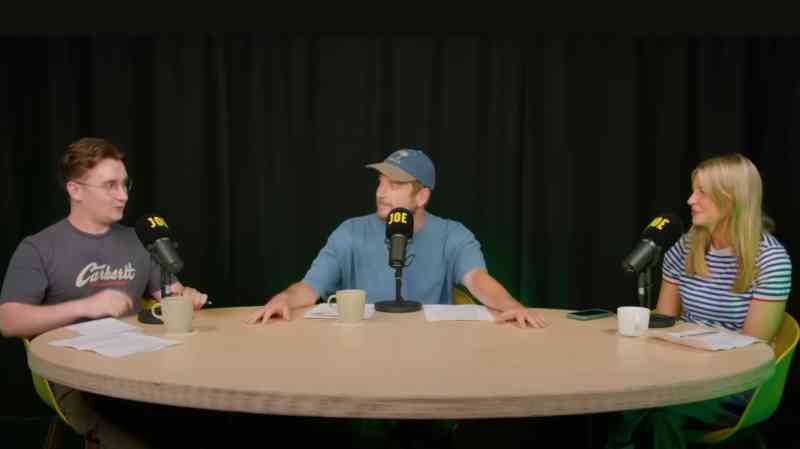Latest TikTok craze is … teenagers swotting up on maths
Parents despair at teenagers staring at their phones when they should be studying but growing numbers of youngsters say they are using social media to revise.
Maths teachers and channels devoted to the subject are proliferating in particular, with popular videos including AI fakes of celebrities explaining mathematical concepts and ten-hour live revision streams. TikTok has just added a Stem (science, technology, engineering and maths) feed to its home screen for under-16s in the UK, after it took off in the United States.
The wholesome and educational content may appear to be a boon, but an expert has said bitesize and gimmicky tactics do not work, and that novelty maths clips do not equate to proper learning.
TikTok claims its new feed will inspire a new generation of engineers, mathematicians and science enthusiasts. It says that after a similar venture in the US, Stem content grew globally by 24 per cent.
Some videos are produced by organisations such as New Scientist or a physicist working on the Large Hadron Collider. Others include manipulated footage of celebrities spouting formulae in 60-second chunks.
One content producer, Onlock Learning, has posted a one-minute video purportedly showing the rapper Drake discussing trigonometry with the late Queen Elizabeth, who says that the word adjacent is a “fancy way of saying next to”.
Another appears to show the American rapper Ice Spice and the tech entrepreneur Elon Musk explaining logarithms, and in another the actor Morgan Freeman talks about gradients.
At the other extreme, in terms of length, some teachers are holding marathon online revision sessions.
One maths teacher, Neil Trivedi, who has 300,000 followers on Instagram, 1.5 million on Facebook, 200,000 across his TikTok accounts and a YouTube channel with 18,000 subscribers, says his live revision streams are like conducting an opera.
The 29-year-old UCL maths graduate, once led an eight-hour maths crash course in a stream that attracted tens of thousands of teenagers.
Trivedi, the head of maths at the online tutoring firm MyEdSpace, said: “It’s nothing like teaching in a classroom — no dealing with behaviour or other distractions from learning. You need heaps of cool content to keep students engaged. It’s incredibly taxing on the brain but I love it.
“Students buy into my personality. What student do you know who turns up to lessons an hour early? I’m not just another online maths geek. I make learning enjoyable.
“It’s essentially an entertainment business. Many teachers don’t realise what it takes to run a stream. You have to be able to hold a crowd.”
However, videos and social media clips cannot match proper “hard” learning, according to David Thomas, a former maths teacher and government adviser who is now chief executive of Axiom Maths, a charity that provides maths champions for schools.
He told The Times that children would be better off playing and reading rather than scrolling social media for revision help.
He said: “We face a big risk if pupils convince themselves that watching novelty maths clips is learning. Stem TikTok is better than normal TikTok but let’s not kid ourselves that it’s teaching children.
• How much do you know? Take our maths test
“Learning happens when we think hard about things. Scrolling through short funny video clips of celebrities sharing maths mnemonics is not thinking hard. It might increase familiarity, but this isn’t the same as learning.
“Learning happens as part of a curriculum. Picking up isolated facts might be good for a pub quiz or a bit of trivia, but it’s not the way to build an understanding of a subject or the world. Teenagers will learn from practising maths, not mindlessly scrolling through fake video clips.”
He added: “There is a silver lining, though, which is the wider signal this sends about maths being valuable. Too many children today feel like they have to hide their love of maths to fit in. If a Stem feed makes those children feel more confident then I’m all for it. But I’d still rather our children were reading, playing and cooking than being on TikTok in the first place.”




Post Comment